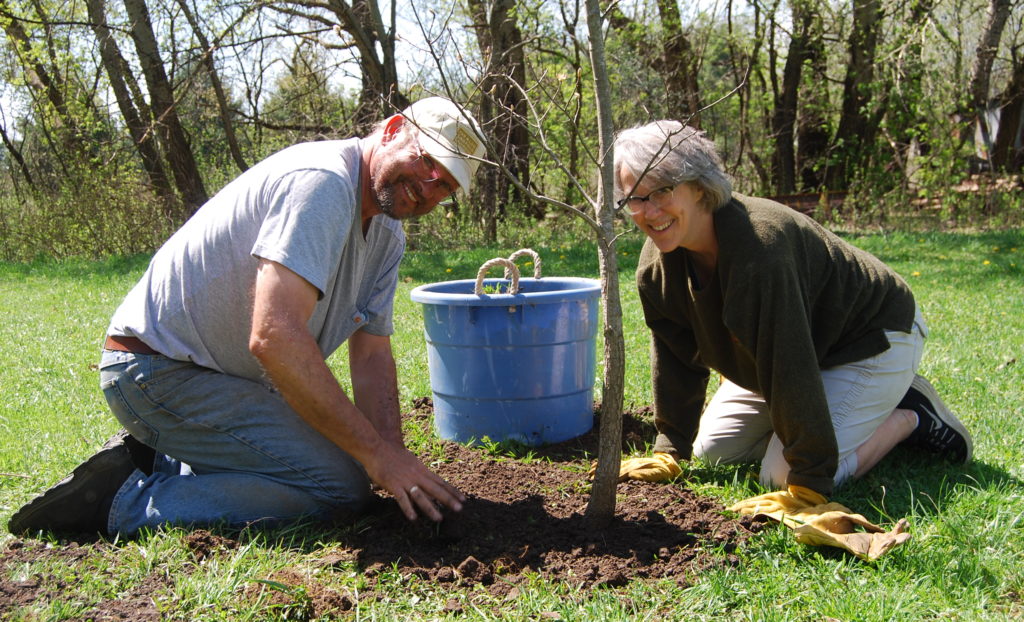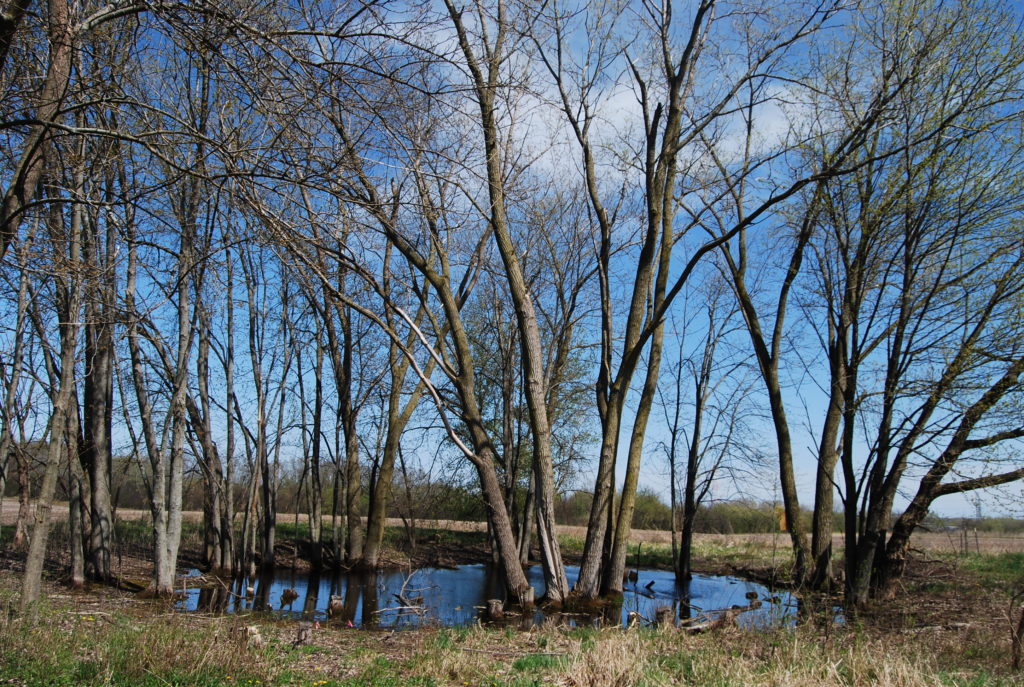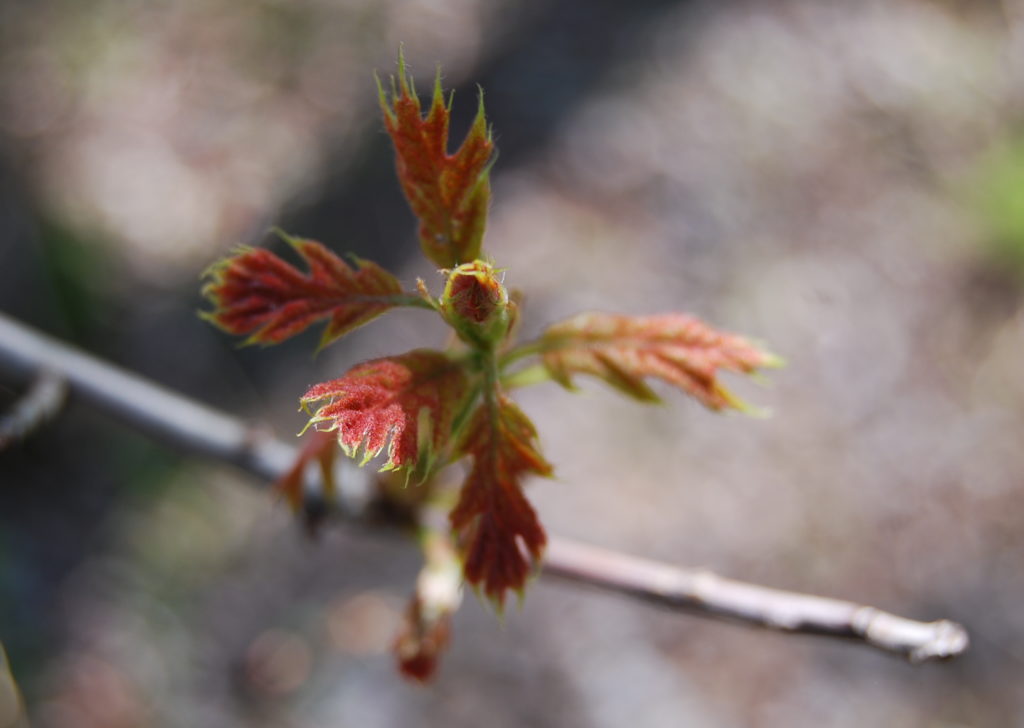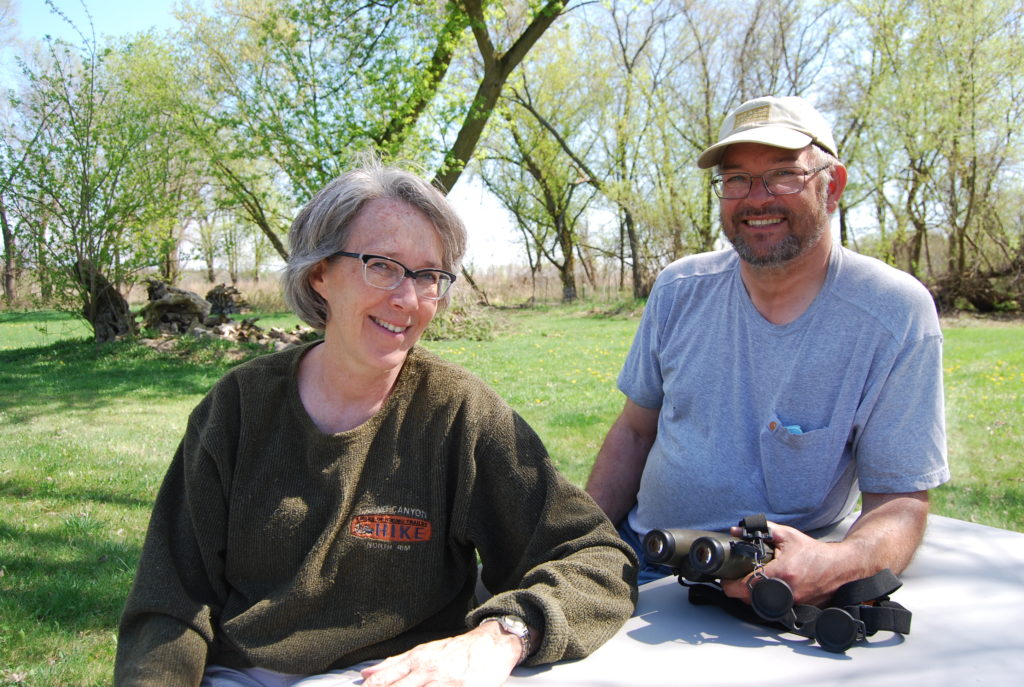In the last year, Christian farmer friends in rural Wisconsin had recommended John Ikerd to me as someone to who had real wisdom about their world. Watching his presentations online and reading some of his writing. I became convinced I needed to interview him. When I reached out, he graciously gave me over an hour.
You can learn more about his life, life mission, and accomplishments here at his website. Suffice it to say that his life has been thoroughly intertwined with farming since his childhood, and he has also immersed himself in the study of agricultural economics. He knows the realities of farming. He sees the big picture. His books and presentations attract attention because of his insights and how he shares them – with intellectual clarity and moral conviction.
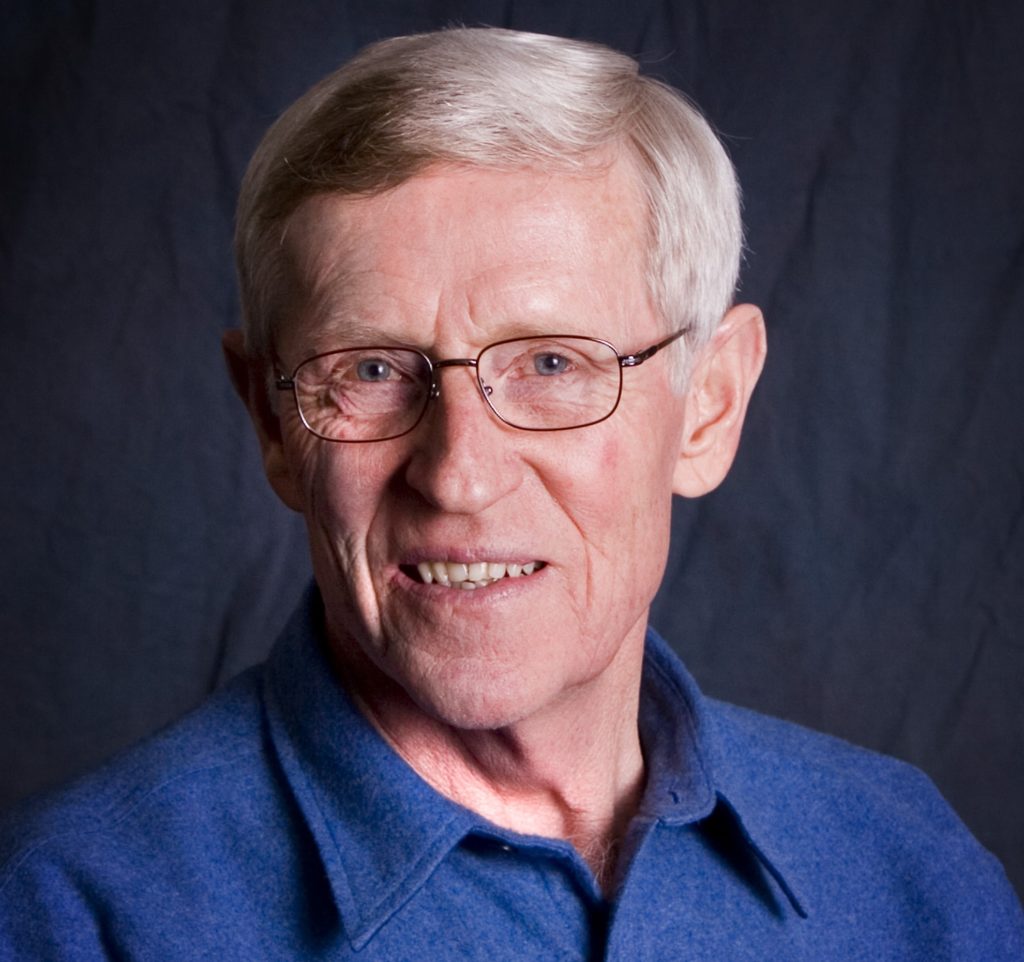
I have already written about my conviction that God-honoring stewardship of the earth necessarily includes the question of how we farm and what we choose to eat. I hope this interview helps you better understand how the industrial farming system has been tremendously productive but has also harmed the communities our rural brothers and sisters live in. How we farm is not just a question of production techniques but is a foundational element of the kind of society we create. Christianity has spent a great deal of energy thinking about what constitutes a just war. In light of the tremendous impact of agriculture every day on our forgotten rural neighbors and on God’s earth, maybe it’s time churches thought more about what constitutes a just farming system.
One last note – despite the fact that this is an edited record of our conversation, it is still long. Gird yourself with a caffeinated beverage and a comfortable chair!
Nathan: From your writings and speeches, it’s clear that agriculture matters a whole lot to you. Can you talk about where that passion comes from?
John: I grew up on a small dairy farm down in southwest Missouri at a time when in that part of the country we didn’t have electricity or running water. It was hard work, but I always thought it was a good way of life. It was a good community. I was a member of the Future Farmers of America (FFA). We used to start out meetings with the FFA creed: “I believe in the future of farming with a faith born not of words but of deeds.” I really believed in that.
I went away to college, and I got my undergraduate, my master’s, and eventually my PhD in agricultural economics. I had always worked in extension, so I was always working with farmers. That was a time when we were promoting the industrial approach to agriculture as I call it now. I did it, as did most people who were promoting it at that time, because we really thought it was going to be good for farmers and good for rural communities. We were going to make agriculture more efficient so that more innovative farmers would have profit opportunities and could support viable rural communities. And we were going to make good food affordable to everyone.
During the farm financial crisis in the 1980s, farmers were going broke. I was head of the Extension Agricultural Economics Department at the University of Georgia at that time. I had worked as a livestock marketing specialist. It was our responsibility to go out and help these farmers who were caught with huge debts and high interest rates because they had expanded in the 1970s. “Get big or get out,” we had said.
I came to this realization that the farmers who had the biggest financial problems were the ones who had been doing what we had been advising them to do. They had specialized, standardized, and consolidated into larger farms. And we looked around and saw what that was doing to rural communities – they were withering and dying as farms became larger and fewer. And then I could see what they were doing to the land – erosion and pollution with agricultural chemicals and biological waste.
We were always thinking we’re out here doing something good for families and rural communities. Then in the 1980s I came to the realization that it might have been good for the farmers who had gotten big and survived, but it wasn’t good for rural communities, and it wasn’t good for the land. Eventually it wasn’t going to be good for those surviving farmers because there was really no end to where this was going to go in terms of control of agriculture by larger and larger operations and large ag business corporations.
To me that was all a betrayal of a trust. I had spent a good part of my life thinking I was doing something good, and then all of a sudden it hit me in the face that we haven’t even made good food affordable to everyone. We have more people today that are food insecure then in the 1960s.
So ever since I’ve been on a mission to try to help people understand what happened and to try to get people to realize that we need to fundamentally change our farming and food systems to really serve the greater good of farmers and rural communities and society as a whole and make sure everyone has good food.
That was what it was supposed to be about from the beginning, and it turned out to be something totally different.That’s the reason I’m passionate about it. I feel like I understand something a lot of people don’t understand, and I need to share that with them.
Nathan: I’ve talked to a number of sustainable farmers in central Illinois, and they’re motivated to farm that way out of concern for the future of their towns. Their downtowns have emptied out. The school districts have consolidated. What is the relationship between the industrialization of agriculture and the decline of many rural communities?
John: The reason I call it industrial agriculture is because you really treat the farm like a factory. First, you specialize in doing fewer things so you can do them more efficiently and do them better. We went from diversified family farms with livestock and crops to just livestock or just crops to now just a specific crop or a specific livestock. But when you specialize then you need to standardize those individual activities so that they all fit together and then you can routinize and mechanize.
The technology has basically come out of World War II, and a lot it is intended to make that farm more controllable. We can use fertilizers rather than depend upon building soil fertility. We use pesticides to control pests. And then we brought on the machinery so you simplify the whole process.
When you get to that point, you simplify the management, so you can consolidate into larger and larger farming operations. You gain the economic advantage in that kind of operation by being able to consolidate those standardized, specialized activities so you’ve got fewer and fewer people making decisions. So, in other words, fewer and fewer are at the management level, and you’re replaced much of the labor with machines and chemicals and technology. The people who are remaining and who are working the farms are less skilled then they were before, because they’re really not making the decisions. They’re basically just operating the machines and applying the pesticides.
So by its very nature the industrial process employs fewer people with a few people in position to make more money, but fewer people total and most of the people making less money. It’s an inherent consequence that when we industrialized agriculture there would be fewer farmers and lower farm employment in total and that you would have low paid farm workers and a few large landlords or managers.
You see the consequences. There are fewer opportunities for family farms out here, which means fewer kids to go to school, fewer people serve on volunteer fire departments, fewer people to go to churches. It was a natural consequence of that approach to have the displacement of millions of family farmers and the economic and social decline of rural communities.
Blind Faith
Nathan: One of the things you say is, “The root cause of the current crisis in agriculture is the same as the root cause of ecological degradation and of social and moral decay in society in general – the society that blindly accepts the economic bottom line as if it were the word of God.” How did we get to this point?
John: Well, that’s another part of this industrialization process, and it’s the same as overall economic development. What drives that whole system is this motivation to increase efficiency and profitability. What justified that in the minds of people like myself back then was this idea that if we increase the economic efficiency of something, it was going to automatically be good for society as a whole. The pursuit of individual economic self-interest would automatically serve the greater economic interest and therefore the overall wellbeing of people.
That goes all the way back to the foundations of economic theory. People talk about Adam Smith’s Invisible Hand, which is about transforming individual greed into greater societal good. Under the conditions that he described it, with small business owners and their customers carrying out face-to-face transactions in their local communities, at least it would have been to the economic good of society if not to the social.
But we don’t have anything approaching those conditions today, but we still preach this free market philosophy. If farmers are doing things that increase profits, then they are doing things that consumers want done and society wants done. When we pursue that more profitable model, then it’s going to automatically be good for people. Food costs are going to be lower. Then farmers are going to find better economic opportunities elsewhere, because that just means there are better opportunities to go to work in factories or offices. The markets are dictating this. In other words, if it’s more profitable to do something, then it may cause some temporary inconvenience for people, but after they’ve gone through this adjustment to these new conditions then everybody is going to be better off.
And we’ve gotten to the point that we just believe that as a blind faith.
And not only is it displacing people, and that’s presumed to be good, but we’re mining the natural productivity of the land. We’re doing those things because it’s more profitable to do them that way in the short run, and economics is inherently short run. We’re doing it because it’s more profitable and we accept that because it’s more profitable then it must inherently be good.
We basically replaced our belief in God and our belief in some more fundamental ethical and moral principles with this blind faith that if it’s more profitable then it must be good for society. We may not accept all the complexities of it, but we accept that if we go out here and make more money, then that’s what society wants us to do.
Nathan: You raise an interesting point about how Christians have come over to that blind faith in the market. Do you have any ideas about why American Christians don’t question that more, don’t question the corporate control of so much?
John: What we’ve found out is that Christians are just as subject to the seduction of the market as anyone else is. This economic belief that I’ve just described is a belief. It’s not written anywhere. It’s a very seductive belief, because basically I don’t have to worry about what the implications are going to be for other people or the land. Even if they are temporarily inconvenienced, eventually they’re going to be better off.
The unspoken faith of economists is that all we have to do is provide an economic incentive, and we will create the technologies that will solve any environmental or social problem we create or we will come up with a substitute for any resource that we use up. When you degrade something to the point that it becomes scarce, then it becomes economically valuable, and once it becomes economically valuable then people automatically take steps to increase its production. That’s just a blind faith.
The first century or so of classical economics was fundamentally different. Classical economics asserted that the economy had to function within the bounds of what I call a socially equitable and morally just society. In other words, bounds had to be placed around the economy to keep it from extracting natural resources and exploiting people. We really only abandoned that about a hundred years ago or so.
Nathan: How does that relate to the common situation I’ve seen where when a farmer in a rural town decides to go organic or sustainable they are oftentimes shunned, isolated, and not spoken to at the local coffee shop? Why does that happens?
John: This kind of alternative to industrial agriculture questions that whole foundational belief. The farmers that are left out there are the survivors. Up until now anyway the system has been working for them. So if their neighbor goes organic, the message they get is that what you’ve been doing your whole life is wrong. It’s polluting the environment. It’s not producing healthy food.
So it challenges their basic belief about themselves. They react to that challenge by wanting to diminish the threat or marginalize the threat or laugh at it or whatever they need to do to minimize this challenge to their ego and to their way of life.
And I understand what they’re going through because I have devoted about half of my 30-year academic career and half of my life to this industrial approach to agriculture. When I was forced to confront the fact that the outcome is not what I thought it was going to be, my whole career path changed. I was the department head at the University of Georgia at that time and was on track to be an extension program leader or extension director or maybe a dean. But when I began questioning the system, the whole thing changed. I wasn’t on the advisory committees or search committees anymore, because I was questioning the whole institution. I was questioning what the college of agriculture had built its reputation upon.
It’s the same way with the farmers out here. The sustainable farmers may not consider this questioning it at all. They may say, “Well, I’m simply doing what I feel I ought to do.”
But their neighbor looks at it and says, “What you’re doing is challenging my whole belief system and threatening the whole idea of what I’ve been all my life.”
I think that’s the reason they reject it so strongly.
Nathan: When there is a different paradigm that questions all of that one has believed about oneself, it’s got to be tremendously threatening. Do you have any advice about how to get around this? We’ve seen that encouraging farmers to go sustainable has all kinds of social implications. Some people won’t go sustainable because they’re worried about how they will be treated socially.
John: You have to begin by realizing these are conflicting belief system. There’s really no way of presenting a set of facts or whatever that’s going to convince someone. Depending upon your worldview, you can interpret the same facts in different ways.
So whenever I’m talking with audiences which might be skeptical or hostile to what I’m saying, I relate what I’m saying back to these core values. Because I still think that we share a common set of basic core values. When I’m talking about sustainability, for example, I’ve said, “Look, what I’m talking about is a belief that people have a basic right to safe, healthful food. They have a right to clean drinking water.” I go back to the Declaration of Independence that says, “We hold these truths to be self-evident that all men are created equal and endowed by their Creator with certain unalienable rights – life, liberty, and the pursuit of happiness.”
I say the right to everything else is preconditioned on the right to life. And if you don’t have enough food, you don’t have safe water to drink, you don’t have a healthy environment, then your right to life is being considerably diminished. We shouldn’t be farming in a way that compromises the basic God-given rights of people.
A lot of times that will get people in the audience to at least sit and think, and it changes the conversation a bit. They may rationalize that they’re not doing those things, but at least they have to think about it.
Is it really fair to someone that’s been living out here on a farm maybe two or three generations and then you have their neighbor expand what was a traditional hog operation, which nobody had any problem with, to a concentrated animal feeding operation (CAFO) that basically destroys their neighbor’s quality of life? Is that fair? Is that being a responsible member of the community?
Let’s talk about what’s right. Let’s talk about what’s fair. Let’s talk about how we ought to treat each other.
It’s the same way with the earth. I’ve read some of the things you write, and I think the churches need to start talking about this as God’s creation. What we do to the Creation is a reflection of our respect or lack of respect for the Creator. God created the earth, and he said it was good. Who are we to question God?
Earth Stewardship is a Spiritual Matter
Nathan: You also wrote, “We must realize that stewardship of the resources of the earth ultimately is a spiritual matter.” Can you say more about that?
John: Because I’m an economist, people want to rationalize what they are doing in terms of economics. So many times people want to say, “Isn’t it going to be more economically advantageous to us to really take care of the natural resource, rebuild the fertility of the soil? Isn’t it really more economically viable if we produce safe food so people won’t be sick and won’t have hospital bills and won’t be missing work?” Of course those things are significant, but this isn’t just an economic matter.
For one thing, economic value is short term, so it always discounts things that are way in the future. So if you look at it from a strictly economic standpoint, then you would say there’s some economic loss here from degrading the productivity of the soil and polluting the water. But the people that are making the decisions don’t pay it, but you know society is paying it. And there’s some economic cost to society from illness and lost work from producing food that is unhealthy.
The point I’m trying to make is that’s just the tip of the iceberg. We don’t have a right to destroy the things of the earth. It’s not only not right and fair and responsible for those of future generations that will have to depend on those things after the fossil energy is gone and all the other stuff is gone. It’s not only unfair to them. It is a desecration of something that we’ve been given to take care of.
We don’t have a right to create a generation of sick kids because we produce food that made them obese or destroyed their ability to function and grow and learn. It’s not just the medical bills we’ll have to pay. It’s the fact that we don’t have a right to go out there and diminish the quality of someone else’s life or shorten their life. It’s not simply a matter of economics. These are ethical moral issues that we’re dealing with.
Nathan: Have you seen any Christian churches engaging in this conversation in productive way in rural areas, especially around CAFOs?
John: I hear over and over again that CAFOs split the community and they split the churches – who’s supporting them and who’s not. And in a lot of cases I think this is true of industrial agriculture in general but CAFOs also: it’s the people out there who have the money to invest in these facilities who also tend to be the major contributors to the churches. The pastor has got to think very seriously about if he’s going to call out this member of the church that’s been the biggest donor.
I honestly have not heard of rural churches that have been willing to take any kind of a strong position against what I call industrial agriculture, against the CAFOs. There may be some that try to stay as neutral as they can, but I haven’t heard of any that have really come out against them. I just haven’t seen the churches play a very big role in this.
I was really impressed with the pope’s encyclical Our Common Home. I thought that was one of the most powerful documents to ever come out of the religious community. In that document, he explains things from the standpoint of the Catholic Church and from the Scriptures, but he also explained things on very common sense values and moral principles. It basically said our problems are all tied up in this blind faith in the market economy and the current version of capitalism, which is really a perversion of what capitalism is supposed to be.
I think people have come to realize that what we’re talking about here are deeper issues that permeate the whole society. We’re going to have to be willing to challenge those. I personally think the way you challenge them is to talk plainly about values and moral principles. I think oftentimes churches, and especially the Catholic Church, are particularly bad about this. When the message comes across in religious jargon, you can just slough it off. You can say, “Well, that’s what I hear at church, but that’s not really relevant to the way I farm and the way I do business.”
I think the message is going to have to come across in direct moral and ethical principles. Talk in terms of common sense using principles people will hear. I haven’t found anybody yet that wants to stand up and say, “I believe that it’s OK to be dishonest, unfair, irresponsible, disrespectful, and uncaring.”
Nathan: Speaking of CAFOs, they’re really at the intersection of corporate economics agriculture and rural life. There are battles around these all across the United States. How do we get to the point where CAFOs aren’t even allowed?
John: We need to realize what a corporation is. Now a family corporation is no different than the family. The family can have strong social and ethical values that it gives priority to rather than economics or not, depending on what kind of family it is. But at least it has the ability to do what’s right rather than what’s most profitable if there’s a conflict there.
But what people need to realize is when you go to the large publicly held corporations or publicly traded corporations, which are basically controlling more and more of agriculture these days, these large agribusiness corporations have shareholders scattered all over the country and all around the world. Some of them may have very strongly held moral and ethical principles. But the only common principles that the management of the corporation can be confident of is their desire to increase the value of their investment. It becomes a purely economic organization. When you have companies owned by pension funds and mutual funds, the people that own them don’t even know which companies they own on any given day. So there’s no way to reflect anything other than this desire to increase the value of the stock.
What we’ve done is we’ve created purely economic entities that have no capacity for having any social or ethical values.
We need to understand that a corporation is not a real person. That’s difficult given that the Supreme Court doesn’t recognize what I just explained here. The political process is not supposed to be an economic process at all. It is supposed to be about the common good. It is supposed to be about reflecting the social and the ethical values of the people. It’s not purely about individual economic self-interest but that the country functions for the good of society as a whole.
A corporation is not necessarily good or evil. It’s a purely economic entity. All it’s going to do is maximize its economic returns for the shareholders regardless of the consequences. And it’s going to try to remove any restraints in doing so, including regulations which is what we see now. You see the corporations using their economic power for political power to remove all the constraints to whatever they do. You see this in agriculture. This is the reason that the agribusiness corporations are basically unregulated, because they’ve used their political power to get treated the same as individual family farms.
Nathan: You’re saying that to push this back you have to start changing the legal status of corporations.
John: Right. There’s a whole movement called Move to Amend that would add an amendment to the Constitution, which would say basically that corporations are not real people and have no right to participate in the political process.
I think ultimately that’s what has to happen in the country. When I go back the Constitution, the fifth article of constitution is about amending the Constitution and how you go about amending it. I think the people that wrote it obviously intended it for it to be amended as necessary for it to continue to function for the good of the people. We need to look at constitutional amendments and the ability to regain control of the corporations. The only means we have of controlling corporations is through government. I think they consciously work to make government dysfunctional, so that they’ll be able to control. That’s a perfectly logical thing for a purely economic entity to do.
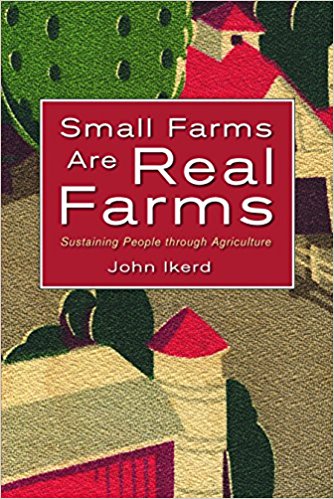
Nathan: You talk a lot about a small farm being a living organism. We’re all shaped by the environment that we’re in, whether it’s a family or an organization. Do you think that a small farm being managed sustainably actually shapes the person as much as the person shapes the farm?
John: Yes, I think it does, and that’s important. Today, if you’re growing up on one of these industrial operations, it’s all big machinery. It’s all mechanized. It’s all computerized. And there really is no connectedness to the land. They may not even get out and walk around on the land anymore. They can even sample soil without ever getting out and walking around on it.
But if you grow up in an environment where you understand that the productivity of the farm and the well-being of the family is all wrapped up in keeping the land healthy, keeping the soil healthy and productive, having healthy plants and healthy animals, supporting each other, and all working as part of the system, then you see yourself as the farmer as a part of that living system. I think that shapes how you see everything else in life. You are connected with other people within your community and how communities are connected and how societies are connected. And it’s all a part of a whole. This shapes our whole perception in society of who we are and how we function and how we relate to each other.
I think that’s an important part of what’s happening now. I think a lot of the local food movement and the organic food movement is about a need of people to re-establish that connection that’s been lost because of the industrialization and the separation and the mechanization of people moving off the farms moving into cities that have no connection to the earth.
I think there’s really something within us that tells us that we are a part of this and comes to life in a lot of people. So that’s the reason a lot of young people want to farm now that we have this alternative way of farming. They’re seeing the farmer on the farm in connection with neighbors and community. This kind of organic, sustainable, biological, holistic approach to agriculture is really engaging a lot of young people. They feel that need to be connected.
I personally believe that we’re in the process of recreating the food system, and it’s going to be linked back to this idea of reconnecting people within communities, not just with the land but with each other. This is restoring the recognition that we’re members as well as caretakers of the earth.
We have to have an agriculture that functions in harmony as a member of the community. Agriculture farming systems are members of society so to speak. We’re all organs within organisms, and the farm is just kind of one component and the farmers part of the farm and so on. I think this is a powerful sort of concept. There’s a whole global movement going on which is called the food sovereignty movement. It starts by declaring that food — food sustainably produced, wholesome, nutritious food – is a basic human right. It goes on to proclaim the right of people to determine their own food systems and to control the food systems that they eat from and to control the way the land is farmed and the whole thing within a community.
I see these glimmers of hope for the future that are really growing and becoming brighter around the world but also in the United States.
Nathan: That’s really encouraging to hear. I come from a Norwegian-American background, and we tend to see the glass half empty. So I have to work at being hopeful. (laughter)
John: Well, I don’t know if it’s half full yet, but it’s filling up.
Nathan: What kind of spirituality or religion you grew up with and where you are on your own spiritual path?
John: I grew up in a small Methodist church in the country, and you couldn’t tell much difference between Methodists and Baptists. They were all evangelical. We used to have revival meetings every summer. I loved to go to them. They had really good preaching. People tell me I sound like a preacher in my presentations, and I think I picked up some of that when I was young.
When I went off to college, I was working my way through – I had three hundred dollars from selling an old sow. I went to a Methodist church there, and one Sunday morning they told the congregation how they just had spent something like twenty or twenty-five thousand dollars to improve the church organ. And I thought, “Why am I coming here and giving money to this church?” There’s a lot of people out here that need twenty five thousand dollars. That just diminished my whole concept.
So I didn’t start going back to church again until I got married and had children. I said, “I’m going to raise my children in church because I thought I had really benefited from being raised in church.” We went to church religiously, mainly to Southern Baptist churches, but also I think we were First Church of Christ and some fairly fundamentalist churches, which is a good experience. In the Baptist Church they really studied the Bible. I’ve learned a lot going back and really studying the Bible, and that really reinforced my faith. But as I made up my mind more and more and realized what I really believed and what I didn’t believe, there were too many conflicts between what I saw as the dogma of the church and what I was developing as my own belief system and faith.
So I tell people I haven’t been in church probably since the early 90s maybe the late 1980s other than a wedding or a funeral or something of that nature. But I’m probably more spiritual now than when I was in church. I’m part of that group that they call spiritual but not religious. I take my spirituality very seriously.
I’ve always expressed my views as spiritual rather than religious. People will come up and say, “You know why don’t you talk about religion. Are you a Christian?” I say, “Yes, I’m a Christian, but I don’t feel it’s necessary for me to explain the things that I’m trying to explain here in terms of moral and ethical values.” I don’t make anything out of my religion, because I don’t want people to be turned off because I’m a Methodist or a Baptist or a Catholic or whatever. And when I quote from Pope Francis, I tell people, “I’m not a Catholic, but you can learn a lot you know from people like Pope Francis regardless of whether you’re religious or not.”
We just need to start thinking in terms of our ethical and moral values and giving those priority over our economic values. We have to give priority to deeper ethical and social values. We have to give that priority over economic values or we’re not going to be able to sustain our economy.
I tell people, “There’s no way you can sustain society at the level we are now without having an economy. But there’s no way you can sustain the economy unless you take care of society and this ability of people to get along and function together and that the people take care of the earth and our natural resources.”
We have to find the courage to give priority to ethical and social values over our individual economic self-interest.
Nathan: Thank you so much. You’ve helped me both in this conversation and in your writings to have a framework for thinking about the economy and agriculture and how all those things that relate.
John: I appreciate the opportunity to visit with you. I think what I’m doing now is my purpose so you are going to help me fulfill my purpose. So I thank you for that.


